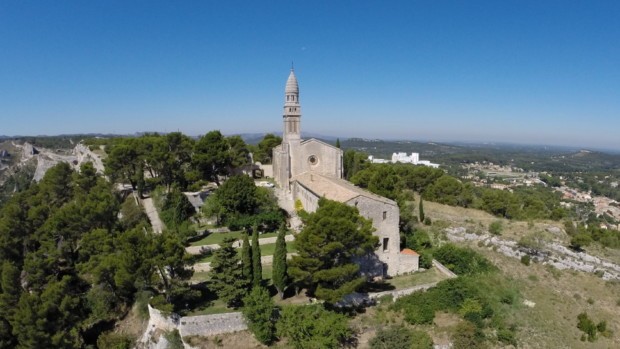The altar, often overlooked amidst the grandeur of a church, holds profound significance in Christian faith. It’s not merely a piece of furniture but a sacred space, the “autel de la croix,” symbolizing Christ’s sacrifice and serving as a focal point for worship. This article explores the rich symbolism of the altar, drawing upon the recent consecration of a new altar in Orgon, France, where Bishop Dufour eloquently elaborated on its meaning.
The Altar as a Memorial
The tradition of building altars dates back to biblical times. Abraham, considered the father of faith, built altars to commemorate God’s promises. Similarly, Joshua erected an altar after conquering the promised land. These acts established the altar as a memorial, a physical representation of significant events and covenants. Just as these ancient altars marked pivotal moments in biblical history, the newly consecrated altar in Orgon serves as a tangible reminder of God’s enduring presence and love. It was crafted from stone by a local artisan, thanks to the generosity of donors, further solidifying its connection to the community.
The Altar and the Sacrifice of Christ
The altar’s central importance stems from its connection to the crucifixion. It represents the ultimate sacrifice made by Jesus Christ, the “autel de la croix,” where he offered himself for the salvation of humanity. The altar makes visible this pivotal moment in history, allowing believers to connect with the core of their faith. Each time the Eucharist is celebrated, the altar becomes the focal point, reminding us of Christ’s sacrifice and the enduring power of his love. This act of remembrance makes God present among his people, renewing the covenant established through Christ’s death and resurrection.
The Consecration Ritual: A Rebirth in Christ
The consecration of an altar involves five symbolic gestures: washing, anointing with holy oil, perfuming, covering with a white cloth, and illuminating. These actions mirror the rituals of baptism, signifying spiritual cleansing, the indwelling of the Holy Spirit, the fragrant offering of prayer, putting on Christ, and radiating the light of resurrection. The consecration ceremony not only sanctifies the altar but also rekindles the baptismal grace of those present, strengthening their commitment to Christ. Each gesture underscores the profound connection between the altar and the individual believer’s journey of faith. 
The Altar: A Call to Offering
For Christians, the altar signifies more than just Christ’s sacrifice; it also represents their own offering to God. Just as Christ offered himself on the cross, believers are called to offer themselves as spiritual sacrifices during the Eucharist. This reciprocal act of offering underscores the transformative power of faith and the ongoing relationship between God and humanity. The altar serves as a constant reminder of this call to surrender and devotion, urging believers to live lives worthy of their calling.
The Altar: A Foundation of Faith
The Christian community itself can be seen as an altar, a foundation built on the sacrifices of countless individuals, including the martyrs of the early church. Traditionally, altars were built over the tombs of martyrs, linking the sacrifice of the Eucharist with the ultimate sacrifice of life for faith. The inclusion of relics from Saints Mary Jacobe and Salome in the Orgon altar further reinforces this connection, highlighting the enduring legacy of faith and sacrifice throughout history.
The Altar: A Place of True Worship
Jesus told the Samaritan woman that true worship would be in spirit and truth. The altar facilitates this kind of worship, providing a tangible focus for spiritual connection with God. It is not merely a stage for ritual but a place where hearts are transformed and lives are dedicated to God’s service. It embodies the invisible reality of God’s eternal love, made manifest in Christ. The altar invites all who enter the church to encounter this love and to offer themselves in return.
Conclusion: The Enduring Significance of the Autel de la Croix
The “autel de la croix” stands as a powerful symbol of sacrifice, memory, and spiritual transformation. It connects believers to the central events of Christian faith, reminding them of Christ’s ultimate sacrifice and their own call to offering. More than just a physical object, the altar embodies the very heart of Christian worship, inviting all to encounter the enduring love of God.

